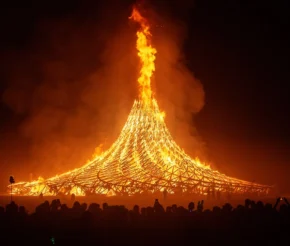- Advertise
-
Subscribe
Silence Falls over Afghanistan’s Music Scene in the Wake of Taliban Takeover

On the 13th Of August, two days before the city of Kabul fell to Taliban forces, Afghan filmmaker, Sahraa Karimi, published an open letter on Twitter urging the world not to ‘turn its back’ on Afghanistan.
As a women and artist, Karimi wrote ‘with a broken heart’ about the threats she and other creatives were facing in a country where key cultural figures were being beaten and assassinated – from the head of the government’s Culture and Media department, Dawa Khan Meenapal, to the famous Afghan comedian, Nazar Mohammad, among others.
The ‘cultural genocide’ feared by many was set in motion
And so the world watched as Sahraa’s worst fears came true. The very next day, the militant group seized Kandahar’s main radio station, renaming it the ‘Voice of Sharia’ and replacing its music with Taliban-sanctioned news, politics, and Qur’an recitations. The day after that, on the 15th of August, Kabul fell and reports flooded the internet of ‘door-to-door’ searches, targeted beatings, and seizures of musical instruments.
The ‘cultural genocide’ feared by many was firmly set in motion.
Despite promises that the new Taliban government was ‘positively different’ from the old one in the 90’s, many have noticed grim signs of the same old violence repeating itself. ‘Voice of Sharia’ operated out of Kandahar back in 1996, prohibiting music and entertainment to such an extent that musicians were forced into exile for fear of their lives.
Unsurprisingly, people see the same fate on the horizon for Afghans today – many of whom are desperately trying to escape their country, like Karimi herself, who was evacuated from Kabul after her letter went viral online.

Music is seen as a distraction from more sacred matters
Under Sharia law, music and dance are forbidden activities, seen as unnecessary distractions from the sacred matters of life.
Though antimusic attitudes have their roots in many global religions, none have been so strongly enforced as in Afghanistan and the Middle East, where music-making involving instruments is ‘haram’ without exception (unlike songs of prayer which are widely permitted).

As ethnomusicologist, John Bailey, notes, strict rules prohibiting freedom of expression often have the opposite effect, leading to underground forms of defiance where ‘music… in itself can become a form of resistance’.
Still, as Karimi’s letter reminds us, when the cost of resisting is so great for Afghan creatives, who could expect them to risk death for the sake of their artforms?
Afghanistan has always had a thriving cultural scene
Afghanistan has always had a thriving cultural scene despite the many attempts made to stamp it out.
As Dr Ahmad Sarmast, musician, conductor, and founder of the Afghanistan National Institute of Music (ANIM), highlights, the country has centuries of rich cultural heritage that it fought hard to rebuild in its years free from Taliban rule.
ANIM is a prime example of this, offering musical education to men and women and producing the first international and women-only orchestras Afghanistan has ever seen.
Unsurprisingly, its future looks a lot bleaker now.
Now, the national instrument lays smashed in the streets

‘Silence’ is what Kamiri urged the world to break and silence is what Afghanistan got, as its radios and TV channels were quietened and its musicians threatened and punished.
Now, the country’s national instrument (the rubab) lays smashed in the streets as hotel lobbies cut their sound systems for fear of repercussions.
‘I do not understand this world. I do not understand this silence’ – Kamiri’s letter despairs, as a new type of quiet settles over Afghanistan.
If the country continues along this path, it’s hard to imagine how its music scene will recover from the damage inflicted upon it.
A guide to deleting your digital history from ‘human rights first’ can be found here if you are someone (or you know someone) affected by the issues raised in this article.





